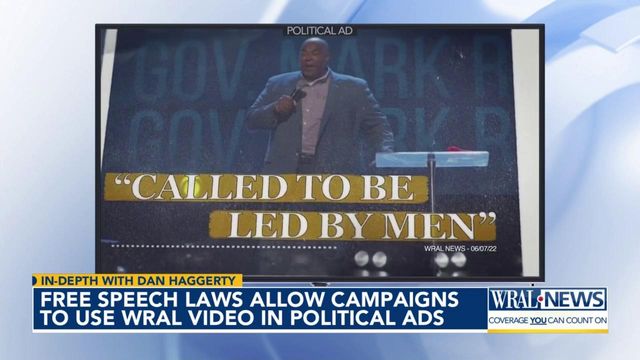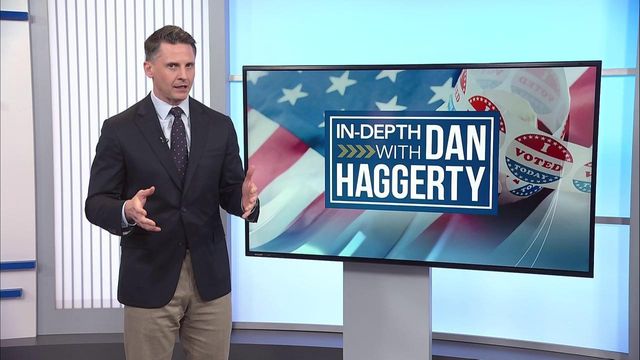Free speech laws allow campaigns to use WRAL video in political ads
The season of political ads has arrived. They’re already popping up in your media feeds and on television. WRAL gets lots of questions about a specific one that features anchor Gerald Owens.
It is an attack ad created and paid for by a group of donors who support candidate Bill Graham, who is running against Mark Robinson to be the Republican nominee for governor.
The ad makes it look like WRAL has picked a side in this contest. But that's not true. WRAL News doesn’t endorse any candidates, and we strive to treat everyone fairly and equally.
And frankly, there’s nothing we can do about ads like this.
That video clip of Gerald was from a story that ran in one of our newscasts. Under the fair-use provisions of copyright law, when it comes to political ads, candidates and consultants can use short pieces of our newscast in almost anything they want.
These ads aren't just allowed to mislead you –– many of them are designed to do just that.
I’ve tackled this topic before, when I met with Capitol One Group's Michael Weisel, an attorney whose job it is to review these types of ads before they’re published or aired. He didn't disagree that the people who make political ads often try to push the language as far as they can without breaking the law.
"Well, of course, breaking the law is sort of a fuzzy term too, right?" Weisel said. "There’s not a statute that says, 'Thou shalt not lie.'"
Can people flat out lie in these political ads? "Well, certainly, they can. And they have,” Weisel said.
Federal rules apply to the political ads you see on TV
Why can they lie? It's a First Amendment issue. The First Amendment doesn't distinguish between fact and fiction in its protections. So most of the time, a television station has to run those ads whether we believe they're truthful or not.
When it comes to candidates' ads, the rule is simple – we can’t say no. They can say anything they want and we must air it.
If WRAL sells airtime to one side, we have to offer equal time to the other side. We don’t play favorites or limit free speech, which is why you see so many ads on our air regardless of who pays for them.
So-called "issue" ads or PAC ads paid for by outside political groups have to follow different rules. We don’t have to air those, and we have lawyers who look at them for legal issues, even though legal issues based on truthfulness are almost non-existent.
The rules also differ between network television and cable stations, as well as for social media sites. Some sites censor people, and others don't. There isn't one set of rules across the board.
"I think we all believe, particularly these days, that the First Amendment is a really important right, and the ability to criticize. I mean, one person’s lie, which is not really a lie, is somebody else’s truth,” Weisel said.
If there is ever a line that sums up politics, I think it’s that last one. It’s both confusing and somewhat infuriating.













